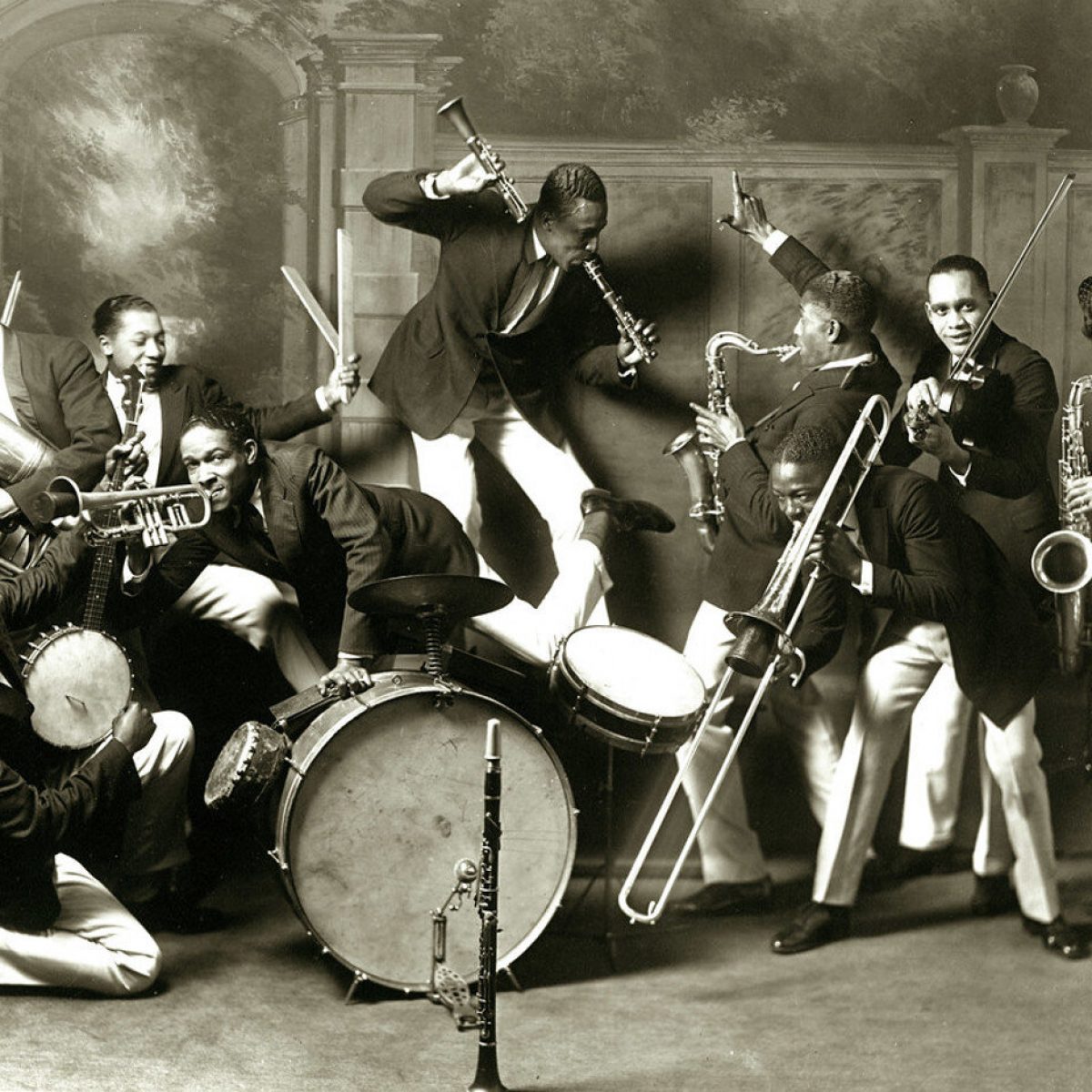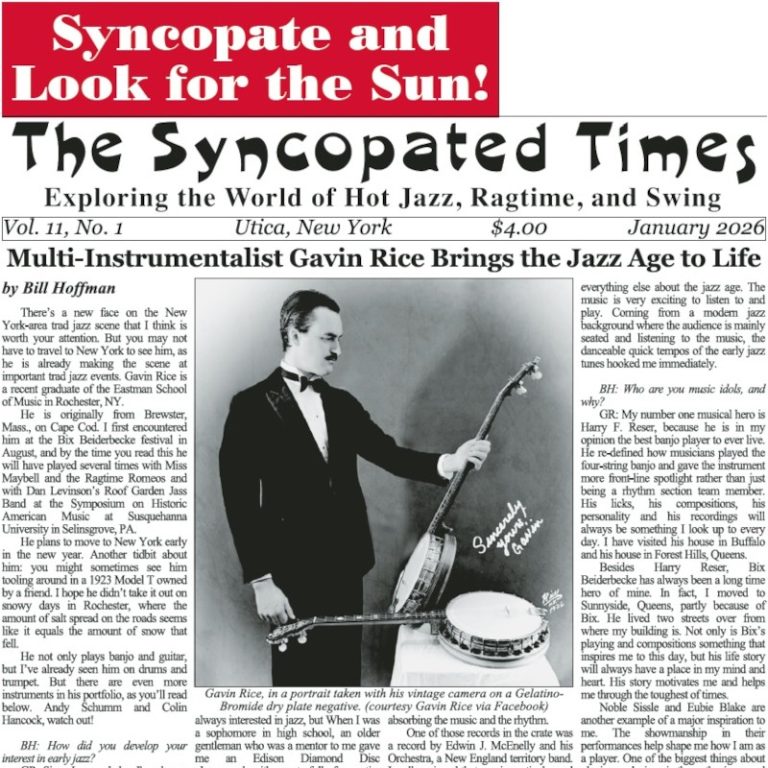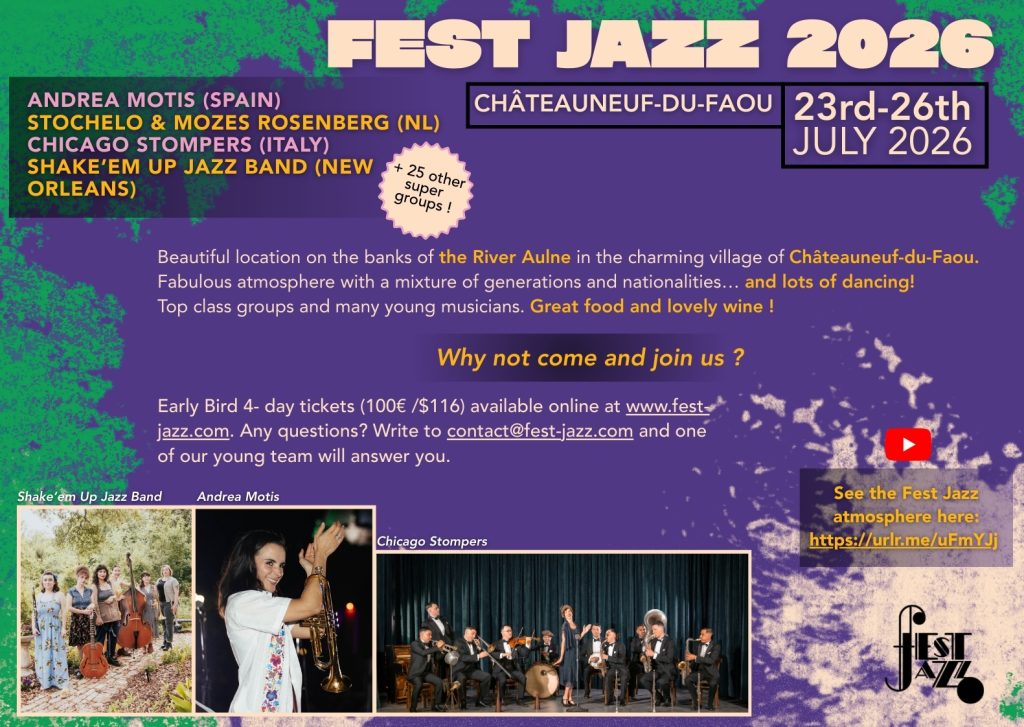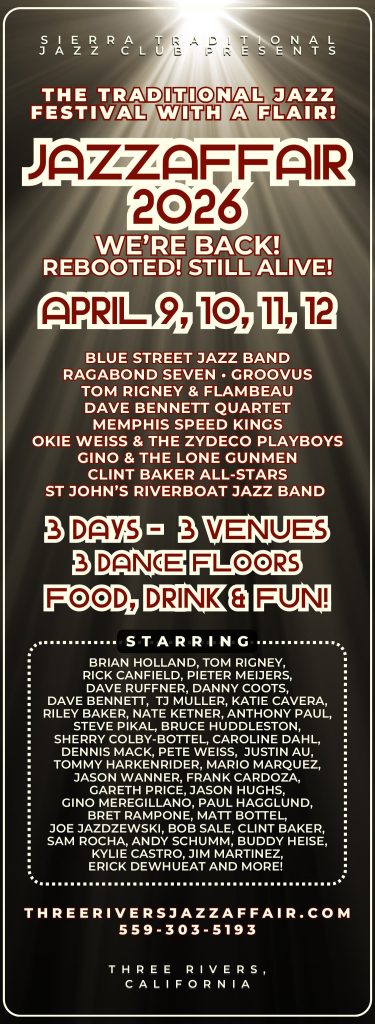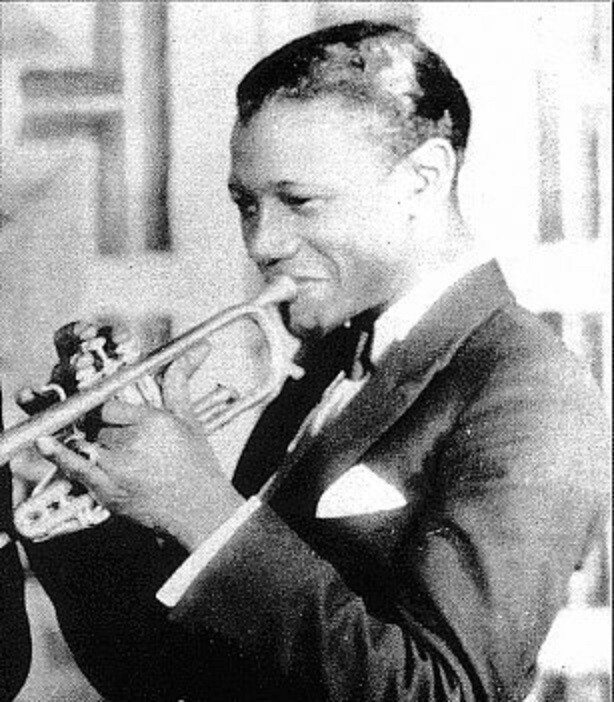 Yes, Virginia, there was a Jabbo Smith! Jabbo had a short but exceedingly important recording career in the late 1920’s when he became the first trumpeter to seriously challenge Louis Armstrong with a virtuosity which was years ahead of its time. His work had a direct influence on Roy Eldridge, a pivotal figure in the development of Modern Jazz.
Yes, Virginia, there was a Jabbo Smith! Jabbo had a short but exceedingly important recording career in the late 1920’s when he became the first trumpeter to seriously challenge Louis Armstrong with a virtuosity which was years ahead of its time. His work had a direct influence on Roy Eldridge, a pivotal figure in the development of Modern Jazz.
Jabbo Smith was born in Pembroke, Georgia on Christmas Eve in 1908, the son of a barber and church organist. After the death of his father when Jabbo was very young he moved , at age four, to Savannah. His mother found it increasingly difficult to care for him and at age six Jabbo was placed into the Jenkins Orphanage Home in Charleston. His mother also found employment in the Home in order to be near to him.
The Jenkins Home placed heavy emphasis on music education and produced a number of important Jazzmen who received their first public playing experience while touring with one of several student orchestras. It was in this setting that Jabbo took up trumpet and trombone at the age of eight and began touring the country with a student band at the age of ten. After unsuccessfully attempting to leave the institution a number of times, Jabbo finally left for good at the age of sixteen and headed north to make his mark on music. He made (and kept) a promise to his mother never to work for less than one hundred dollars a week, a good wage in those days
Jabbo found employment in a number of top bands, the most important of which were Charlie Johnson’s Paradise Ten (an all-star line-up that included arranger Benny Carter on alto) and Duke Ellington, where he substituted for Bubber Miley in a 1927 Okeh recording of Black and Tan Fantasy. Jabbo turned down an opportunity to join the Ellington Orchestra in 1927 because he was offered only $65 per week. We can only lament the loss of the marvelous music that this collaboration would have produced! In 1928 Jabbo joined the pit band of the Broadway show Keep Shufflin’, playing with Fats Waller (organ), James P. Johnson (piano), and Garvin Bushnell (alto). He recorded four sides with this group under the name of the Louisiana Sugar Babes.
Jabbo was stranded in Chicago in 1929 while on the road with Keep Shufflin’ following the gangland killing of Arnold Rothstein, the financier of the show and also known as the infamous fixer of the 1919 Chicago “Black Sox” World Series. By this time Jabbo was a seasoned creative Jazz musician and Chicago had plenty of work.
At the request of Mayo Williams of the Brunswick Record Company of Chicago he formed his Rhythm Aces, a quintet with which he recorded nineteen sides from January to August 1929. In these works Jabbo displays extraordinary virtuosity and exemplary musicianship on trumpet as well as vocal. Possibly, because the work was too advanced or sophisticated, the records were not accepted by the public and have, until recently, been largely forgotten. Of much more importance however, was the fact the these records attracted the attention of Roy Eldridge, who adopted some of Jabbo’s technically explosive, chance-taking speed in the high register and explorative style into his own playing.
According to Roy Eldridge’s own account he lost a “musical battle” to Jabbo in l930 when “Jabbo Smith caught me one night and turned me every way but loose…. he wore me out before the night was through. He knew a lot of music and changes…..”. No other trumpeter could claim to have bested the highly competitive Roy Eldridge in a cut session! Roy, of course, exerted a strong influence on the playing of young Dizzy Gillespie, one of the founders of Modern Jazz. Gillespie’s playing in the period 1938-42 is practically indistinguishable from Roy’s. Thus Jabbo Smith was a key link in the modernization of jazz trumpet style: King Oliver, Louis Armstrong, Jabbo Smith, Roy Eldridge, Dizzy Gillespie, Miles Davis, Clifford Brown.
Toward the end of the 1930’s Jabbo gradually withdrew from serious music activity. He led a group for a while at the 1939 World’s Fair in New York and gigged in a Newark, N.J. club called the Alcazar. It was there that he encouraged a 17 year old Newark singer who sat in at the Alcazar from time to time to enter a talent show at the Apollo Theater in Harlem. She won and got her start. The Singer? The Divine One, Sarah Vaughn. It seems Jabbo also had an ear for talent !
Soon after, Jabbo moved to Milwaukee where he married, did some local playing and enjoyed the security of a steady job with a car rental agency. There Jabbo Smith, one of the top four or five most influential trumpet players of Jazz, languished in quiet oblivion for twenty years. This was indeed a catastrophic musical loss. Finally, around 1960, Jabbo was rediscovered. He subsequently recorded two albums (his style a mere shadow of his former heights) and in 1979 was a guest artist in the musical One Mo’ Time which opened to rave reviews. He also made appearances at several Jazz festivals, toured Europe and performed at the West End Cafe, the Bottom Line and the Village Vanguard, all in New York. One of his last public performances was in Berlin in 1986 where he greatly impressed Don Cherry, the avant-garde trumpeter!
In October of 1990 I nominated Savannah native Jabbo Smith to the Coastal Jazz Hall of Fame on the basis of his importance in Jazz History. He was soon accepted but unfortunatly had already suffered a stroke in May of 1990 and was living in the Village Nursing Home in New York. Jabbo died in January of 1991 at age 82, but not before learning of his acceptance to the Hall of Fame from his best friend in his last years, Lorraine Gordon, owner of the Village Vanguard. I had the honor of presenting the Award to Mrs. Gordon who came to Savannah to attend the induction in May, 1991.
by Len Weinstock, 1992
| Jabbo Smith’s Rhythm Aces | Jabbo Smith and his Orchestra |
Redhotjazz.com was a pioneering website during the "Information wants to be Free" era of the 1990s. In that spirit we are recovering the lost data from the now defunct site and sharing it with you.
Most of the music in the archive is in the form of MP3s hosted on Archive.org or the French servers of Jazz-on-line.com where this music is all in the public domain.
Files unavailable from those sources we host ourselves. They were made from original 78 RPM records in the hands of private collectors in the 1990s who contributed to the original redhotjazz.com. They were hosted as .ra files originally and we have converted them into the more modern MP3 format. They are of inferior quality to what is available commercially and are intended for reference purposes only. In some cases a Real Audio (.ra) file from Archive.org will download. Don't be scared! Those files will play in many music programs, but not Windows Media Player.


